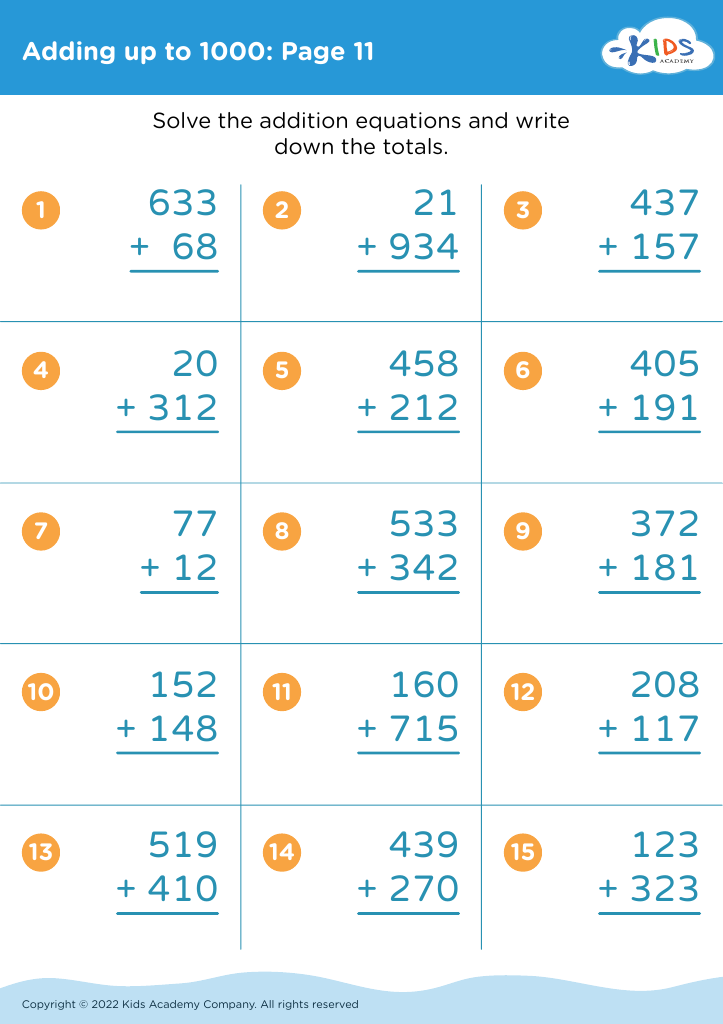Enhance problem-solving Addition Worksheets for Ages 5-8
3 filtered results
-
From - To
Unlock your child's potential with our Enhance Problem-Solving Addition Worksheets for Ages 5-8. Designed to strengthen critical thinking and arithmetic skills, these colorful and engaging worksheets provide a fun approach to learning addition. Kids will solve puzzles, explore number patterns, and tackle real-life math scenarios, fostering both confidence and creativity in problem-solving. Perfect for both classroom and home use, our worksheets help children grasp fundamental math concepts while enjoying the learning process. Give your young learner the tools they need to master addition with these expertly crafted, educational activities. Dive in and watch their math skills flourish!
Parents and teachers should be invested in enhancing problem-solving addition skills for children aged 5-8 because these skills are foundational to their overall mathematical understanding and cognitive development. At this stage, children are in a critical period of their development where their brains are highly receptive to new information, and laying a strong foundation in basic arithmetic can set the stage for future academic success.
Problem-solving involving addition helps foster critical thinking, logical reasoning, and mental arithmetic. These skills not only contribute to their math fluency but also have broader applications across all areas of learning and life. For example, children who grasp addition early on find it easier to understand more complex mathematical concepts later, such as subtraction, multiplication, and division.
Moreover, engaging children in addition problem-solving activities can enhance their confidence and encourage a positive attitude towards mathematics. It can turn what could be an intimidating subject into one they find fun and rewarding. This early engagement also helps identify and address any learning difficulties promptly, ensuring that all children can progress at a suitable pace.
Finally, children develop practical skills such as counting money, telling time, and measuring, which are essential in everyday life. Consequently, a solid grasp of problem-solving addition nurtures a love for math and equips children with the tools needed for their academic journey and beyond.




















